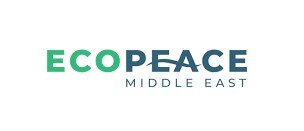By Gabrielle Rosario | HAF-UVA Intern
Recently, the United Nations Climate Change Conference, also known as COP26, was held in Glasgow, outlining the impending need for international climate policy and action. Climate change will raise temperature extremes globally, but even more so in the Middle East, which will already be 4 degrees Celsius hotter by 2050. Not only must the Middle East deal with the effects of climate change, but it must address its ongoing geopolitical conflicts, exacerbated by climate change.
Two weeks ago, in a webinar with EcoPeace and thinktank, Konrad-Adenauer-Stiftung, entitled “A Climate of Peace,” academics and policymakers from Israel, Palestine, and Jordan provided perspectives on how climate policy can unite the Middle East. Yana Abu Taleb, the Jordanian Director of EcoPeace and webinar moderator, asserts first that climate diplomacy shapes relationships between countries and nations. However, she notes that we need customized climate solutions on the regional level, not national or international. With this, the Middle East needs a cooperative, regional solution to address climate change, which would offer an opportunity to solve its geopolitical challenges.
Gidon Bromberg, the Israeli Director of EcoPeace, argues EcoPeace’s Green Blue Deal provides such a cooperative solution, uniting the Middle East with climate policy. The region’s water scarcity problem, the highest in the world, underlies many of its geopolitical conflicts and unaddressed climate change only worsens the infrequent rainfall. As Bromberg notes, however, climate change could be a multiplier of further conflict or act as a multiplier for cooperation.
The Green Blue Deal reflects the natural borders of the region, rather than the artificial, political borders. Through highlighting the region’s watersheds, the deal illustrates the natural interconnectedness of the Middle East. With its four pillars, the deal aims to address the underlying environmental problems of political conflict in the region.
In its first pillar, the Green Blue Deal aims to harness the solar and desalinated water energy of the region, thereby creating healthy interdependencies. Through energy sales, the Middle Eastern region can cooperate to produce and utilize renewable energy. The second pillar, as Bromberg outlines, builds on the movement of water, aiming to supply water down River Jordan and rehabilitate the river with fast flowing water, which is critical to biodiversity protection.
In the third pillar, the deal supports a two-state solution in which the region moves forward on water issues threatened by climate change. Bromberg emphasizes the need to move away from an all or nothing paradigm, which only holds the resolution of water issues hostage. The final pillar highlights the importance of educating Jordanian, Israeli, and Palestinian youth on water scarcity issues and the importance of regional cooperation. Through these pillars, the EcoPeace calls on regional and international leadership to work on climate efforts and support the Green Blue Deal. Climate resilience is not a goal, but rather a necessity.
Dr. Attili, the former Palestinian Minister of Water and expert in water issues, supports the deal, emphasizing the need to take action immediately. He asserts we can gather people through the environment, but if cooperation does not exist, consequences will occur, such as food and water insecurity. Similar to Bromberg, Dr. Attili emphasizes that the current mindset must change, as we must work together to discuss clear and cooperative resolutions to environmental issues.
Alon Tal, a professor and politician, provides the Israeli perspective on supporting the Green Blue Deal, which he acknowledges as necessary to creating unity within the region. Along with Dr. Attili, Tal agrees there must be a proactive initiative to support water resolutions, and he believes Israel is already working towards such a goal. Without cooperation, he argues, the region cannot increase water security or adequately address climate change.
A clear theme presents itself in this webinar: cooperation. Through active cooperation in the Middle East and adopting the Green Blue Deal, the region can address water scarcity and climate change, thereby building unity and resilience.
By Alyssa Underwood | HAF-UVA Intern
By Jasiah Hasan | HAF-UVA Intern
Project reports on GlobalGiving are posted directly to globalgiving.org by Project Leaders as they are completed, generally every 3-4 months. To protect the integrity of these documents, GlobalGiving does not alter them; therefore you may find some language or formatting issues.
If you donate to this project or have donated to this project, you can recieve an email when this project posts a report. You can also subscribe for reports without donating.
Support this important cause by creating a personalized fundraising page.
Start a Fundraiser